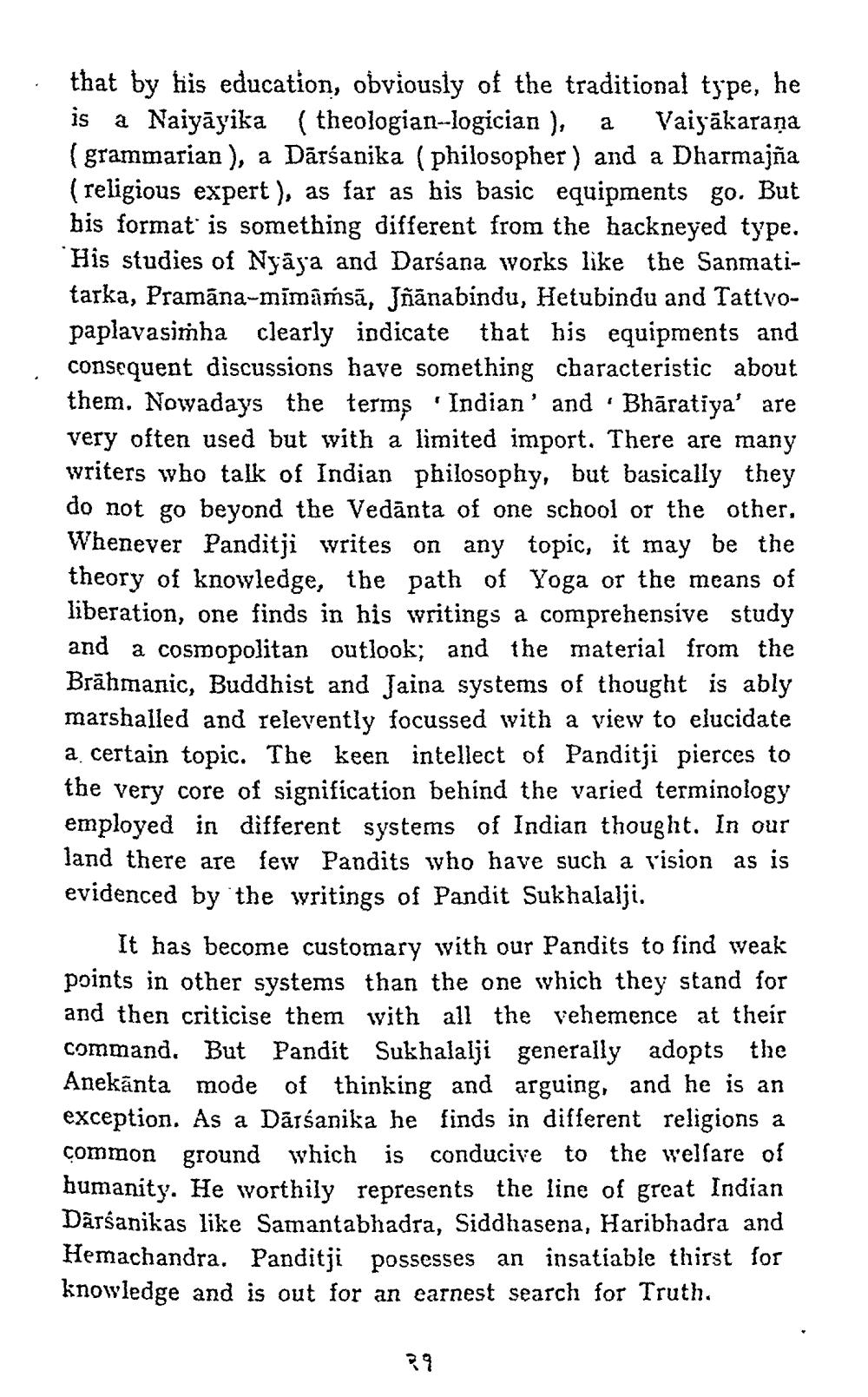________________
that by his education, obviously of the traditional type, he is a Naiyāyika (theologian-logician ), à Vaijākarana ( grammarian), a Dārśanika ( philosopher) and a Dharmajña (religious expert), as far as his basic equipments go. But his format is something different from the hackneyed type. His studies of Nyāya and Darśana works like the Sanmatitarka, Pramāna-mīmāṁsā, Jñānabindu, Hetubindu and Tattvopaplavasimha clearly indicate that his equipments and consequent discussions have something characteristic about them. Nowadays the terms Indian' and · Bharatiya' are very often used but with a limited import. There are many writers who talk of Indian philosophy, but basically they do not go beyond the Vedānta of one school or the other, Whenever Panditji writes on any topic, it may be the theory of knowledge, the path of Yoga or the means of liberation, one finds in his writings a comprehensive study and a cosmopolitan outlook; and the material from the Brähmanic, Buddhist and Jaina systems of thought is ably marshalled and relevently focussed with a view to elucidate a certain topic. The keen intellect of Panditji pierces to the very core of signification behind the varied terminology employed in different systems of Indian thought. In our land there are few Pandits who have such a vision as is evidenced by the writings of Pandit Sukhalalji.
It has become customary with our Pandits to find weak points in other systems than the one which they stand for and then criticise them with all the vehemence at their command. But Pandit Sukhalalji generally adopts the Anekânta mode of thinking and arguing, and he is an exception. As a Dārśanika he finds in different religions a common ground which is conducive to the welfare of humanity. He worthily represents the line of great Indian Dārśanikas like Samantabhadra, Siddhasena, Haribhadra and Hemachandra. Panditji possesses an insatiable thirst for knowledge and is out for an earnest search for Truth.
1




